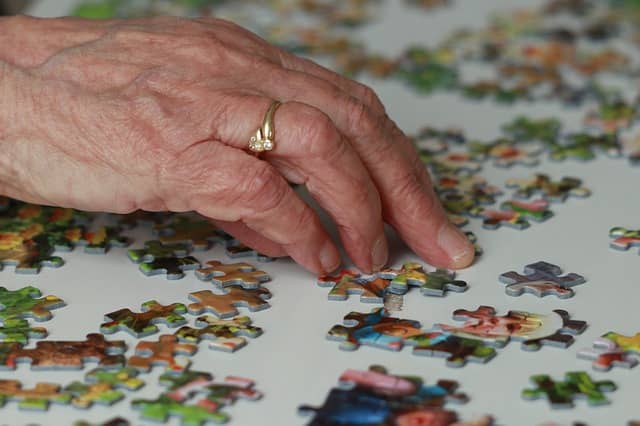
Image by Marjon Besteman-Horn from Pixabay
Creative activities stimulate the brain, and are known to create significance even in a non verbal manner through the power of imagination.
Dementia patients often observe a steady decline in cognitive ability; short term memory, speech and thinking are affected in some patients.
According to a study by Australian scientist from Neuroscience Research Australia, published on the Journal of Alzheimer's Disease under the title “Not everything is lost”, Alzheimer’s disease destroys memory but develops creativity in some patients.
“Creative abilities such as painting or singing that have not yet manifested themselves in humans can occur or improve in patients with Alzheimer's disease or frontotemporal dementia.”
Benefits of creative activities to dementia patients
20 Creative activities for dementia patients
Creative activities can prevent Mild cognitive impairment
Mild cognitive impairment (MCI) is a state between the serious cognitive decline and the normal decline of dementia in normal aging but the person will still have symptoms such as memory loss and can evolve to dementia.
The team surveyed 256 men and women age 85 – 89 who all had normal cognitive function.
All participants were evaluated using the clinical Dementia Scale (CDR) and had a neurological examination including evaluation of memory ability.
To conclude, it was seen that, control of the blood pressure level to normal can prevent Mild Cognitive Impairment (MCI) and creative activities such as painting, DIY craft and arts are hobbies that play a protective role.
How to engage a dementia patient in a creative activity
Care should be taken when engaging a patient into an activity for it is imperative to find appropriate activities to the changing mood and skills of the patient. Here is how to engage a dementia patient in an activity.
The part of the brain responsible for inspiration and sensory abilities seems to wake up thus offsetting the devastating effect of the disease on other parts of the brain.
This study shows that the region of the brain associated with artistic creativity is save from the disease and that area even works far better like to try and compensate the loss in the ability to remember.
Creative activities are known to reactivate inactive skills in patients but in most case it depends on the patient’s needs, form, stage and evolution of dementia.
Organisations like Active Minds specialize in creating activities for dementia patients with a range of abilities to improve their quality of life.
Creative activities are enjoyable, entertaining, meaningful and are rewarding especially when something is being achieved. Here are some benefits:
Creative activities are often link to the person’s hobby and interest event before dementia symptoms showed up.
The priority of every activity is for the senior to feel good during their development.
When choosing a creative activity, the ability or capacity of the concern person should be considered in order not to lead to frustration.
Here are some activities dementia patients enjoy indoor and outdoor.
Mayo Clinic Rosebud Roberts and other researchers carried out a study to see if creative activities reduce Mild Cognitive Impairment (MCI).
All participants were monitored for 4 years and at the end of that period 121 of the participants developed MCI.
It was observed that participants, who engaged in creative activities such as drawing and sculpture, had 73% lower risk of developing MCI than those who didn’t engage in such activities.
45% of those who engage in craft like ceramics and handicraft saw a 55% decrease in MCI risk than does who did not.
Basic Computer usage like shopping and internet search saw a 53% decrease in developing MCI risk.
Be calm: Lay down simple and easy to do task and carefully guide the patient on how to do the task. Remember your primary goal is to engage the patient in action and not to help you.
Be patient and don't be discouraged: In the early stages of dementia, patients respond easily to recommendations but during the later stages, they may need more encouragement so it is of great importance to be calm and try to encourage them.
Adapt the activities to the current situation: As the disease turn to worsen, the patient may lose their skills, so adapt activities according to the progression of the disease. Replace difficult activities with simple and easy to do task. If your love one refuses an activity, it may be that they are not in the mood at that time, so try a little persuasion but do not use force.
Time: Make sure your love one takes regular breaks like say 20 minutes when engaging in an activity to avoid fatigue.
Security: Chose an activity that won’t injure the patient during or after completion of the task.
Help with preparations: people with dementia often go through tough time trying to plan an activity, just help them in planning one and you will be surprise in what the person will come up with.
Choose simple activities and give clear instructions: Activities should be broken down in to step-by-step instructions so that the patient understand and feels happy.
Divide and do the activities together: Join activities are great; each person has a role to play. Plan the activity in such a way that you can finish what the patient cannot do.
Expression, artistic, creation: The activity should be plan in such a way that the patient can express his/her self.






EmoticonEmoticon